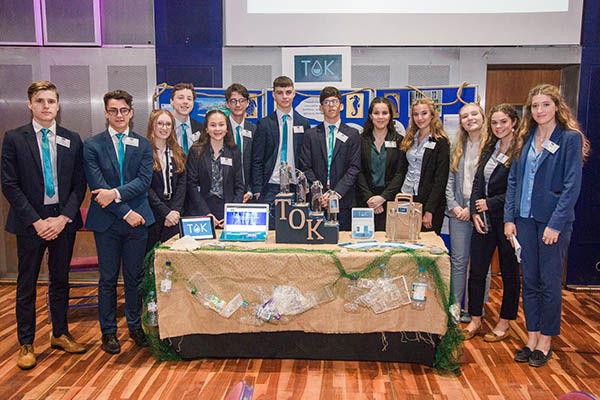
This is perhaps the most inspiring and gratifying time of year to be a teacher, for ‘tis the season to be reading personal statements, those all-important letters of self-recommendation our Upper Sixth students write as they apply to university. At first, our pupils tend to show a very British disinclination to blow their own trumpets in these missives - but once they’ve warmed up, it’s simply remarkable how much they have achieved in their short lives, often with an absolute minimum of fuss.
Reading these documents, you often discover that a young man you know only as moderately interested history student with a messy folder is actually a national wakeboarding champion; or that a shy girl you taught in Year 8 has, by Year 13, turned into a militant feminist Insta-poet with more followers than Justin Bieber.
Utterly disproving the stereotypes of young people today doing nothing but stare at their phones, these statements often leave me reflecting on how much of my own teenage years I indolently frittered away, watching the lunch-time episode and tea-time repeat of both Home and Away and Neighbours.
But the statements I find most fascinating – and, in a way, intimidating – are from those students who, in their spare time, have opened a business. Some upcycle clothes, others organise birthday parties, nowadays there’s always one a year with an App for sale. Such enterprise would never have occurred to me – indeed, to be honest, it still doesn’t, for I have come to accept that I am a natural salaryman, lacking so much as an entrepreneurial metatarsal. My parents were the same, and theirs before. And it’s most intriguing to note that the majority of those statements that do demonstrate the spirit of enterprise come from students whose parents are themselves business owners. Is entrepreneurialism an inherited trait, then? Or can it be taught?
At Hurst we are certainly trying. We take our Young Enterprise team as seriously as any sports side, and have won the Mid-Sussex title seven out of the last 10 years; our award-winning Careers Department organises ‘skills for business’ training for all Sixth Formers; and it’s pleasing to note that much of the growth in Business A-level students in the past few years has been down to our efforts to persuade more girls to consider the subject. And of all the guest speakers our Sixth Formers hear, it’s hard to think of one who gets a better reception than Jimmy Cregan, the hipster millionaire who founded Jimmy’s Iced Coffee from a bedsit in Dorset.
But perhaps we could, and should, be doing more. Today’s young people are surely bored of being harangued with the fact that most of the jobs they’ll be doing in their adult lives haven’t been invented yet. Perhaps we should spend more time pointing out the upside – that they, if they wish, have the opportunity to go out there and invent those new jobs themselves.




